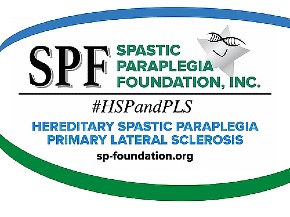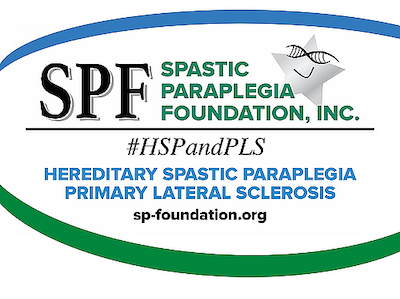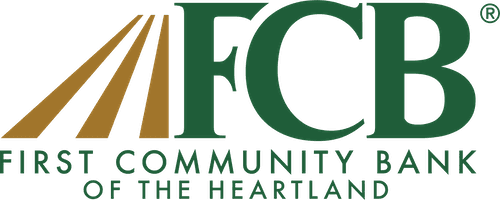Research Grants 2003-2020
2020
I. 2020 HSP Studies
-
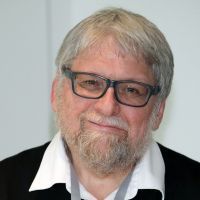 Lupski, M.D., Ph.D., James R.
Lupski, M.D., Ph.D., James R.Cullen Professor, Baylor College of Medicine, Molecular and Human Genetics, Houston, Texas,
“Discovering New Hereditary Spastic Paraplegia Genes through Cutting-Edge Genetic Technologies”.
-
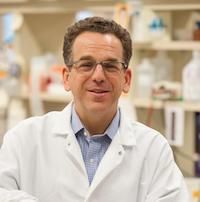 Morrow, M.D., Ph.D., Eric M.
Morrow, M.D., Ph.D., Eric M.Director, Center for Translational Neuroscience, Brown University, Providence, RI,
“Dietary Supplements to Treat GPT2 Disease, a Metabolic Cause of Progressive Spastic Paraplegia”
-
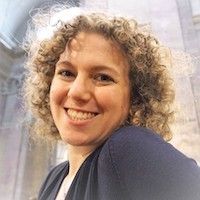 Plotegher, Ph.D., Nicoletta
Plotegher, Ph.D., NicolettaSenior Postdoctoral Fellow, Department of Biology, University of Padova, Italy,
“Alteration in the Level of Cholesterol-derived Molecules Damages Nerve Cells in Hereditary Spastic Paraplegia”.
-
Assistant Professor, Department of Neurobiology and Anatomy, Drexel University College of Medicine, Philadelphia, Pennsylvania,
“How Defective Autophagy May be the Cause for the Nerve Dieback in Hereditary Spastic Paraplegia”
II. 2020 PLS Studies
-
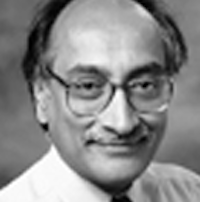 Siddique, M.D., D,Sc. (h.c.) FAAN, Teepu
Siddique, M.D., D,Sc. (h.c.) FAAN, TeepuLes Turner Foundation/Herbert C. Wenske Foundation Professor, Departments of Neurology and Cell and Developmental Biology and Pathology, Laboratory of Neurogenomics and Novel Therapies, Northwestern Feinberg School
of Medicine, Chicago, IL“Identification of the genetic bases of Primary Lateral Sclerosis”.
-
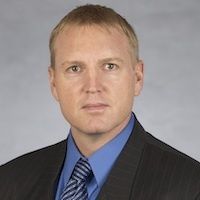 Zeier, Ph.D., Zane
Zeier, Ph.D., ZaneAssociate Professor, University of Miami, Florida, Michael Benatar, M.D., Ph.D., Professor of Neurology and Public Health Sciences, University of Miami,
“Creation of PLS patient-derived neurons to identify disease markers and mechanisms”
2019
I. 2019 HSP Studies
-
 Siddharth Manish Banka, Ph.D., Martin Peter Lowe, Ph.D, Anna Nicolaou, Ph.D.
Siddharth Manish Banka, Ph.D., Martin Peter Lowe, Ph.D, Anna Nicolaou, Ph.D.Manchester Centre for Genomic Medicine, St. Mary’s Hospital; Departments of Biology, Medicine and Health Sciences, University of Manchester, School of Health Sciences; Faculty of Biology, Medicine and Health, University of Manchester, Manchester, U.K.,
“Zebrafish models to study and treat hereditary spastic paraplegia”
-
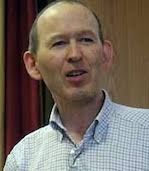 Cahir O’Kane, Ph.D.
Cahir O’Kane, Ph.D.University of Cambridge, UK,
“A neuron within a neuron: Is continuity of the axonal endoplasmic reticulum a factor in HSP susceptibility?”
-
 Carolyn Sue, Ph.D., MBBS, Gautam Wali, MsC, PhD, Alan Mackay-Sim, Ph.D.
Carolyn Sue, Ph.D., MBBS, Gautam Wali, MsC, PhD, Alan Mackay-Sim, Ph.D.Director of Neurogenetics, Department of Neurology and the Kolling Institute, Royal North Shore Hospital, Director, National Centre for Adult Stem Cell Research, Kolling Institute, Royal North Shore Hospital, Sydney Medical School, University of Sydney, Post-doctoral scientist, University of Sydney, National Centre for Adult Stem Cell Research, Griffith University, Brisbane, Australia.
“Finding drugs to treat SPG7 HSP patients”
II. 2019 PLS Studies
-
 Peter Bede, M.D., Ph.D.
Peter Bede, M.D., Ph.D.Associate Professor, Consultant Neurologist, Head of the Computational neuroimaging Group, Trinity College Dublin Medical Patron, Irish Motor Neuron Disease Association (IMNDA) Fellow of the Biomedical Imaging Laboratory, Sorbonne University.
“Using MRI techniques to Expedite Diagnosis in PLS and Monitor Disease Progression”.
-
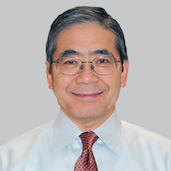 Hiroshi Mitsumoto, M.D., D.Sc.
Hiroshi Mitsumoto, M.D., D.Sc.Wesley J. Howe Professor of Neurology at Columbia University Medical Center, MDA/ALS Clinical Research Center, The Neurological Institute of New York, New York, NY.
“Analyzing disease progress in patients with PLS to develop historical controls, which can be used for the first clinical trial in PLS in the near future”
III. 2019 PLS & HSP Study
-
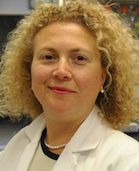 P. Hande Ozdinler, Ph.D., Nicholas Hatsopoulos, Ph.D
P. Hande Ozdinler, Ph.D., Nicholas Hatsopoulos, Ph.DAssociate Professor, Director, Les Turner ALS Laboratory II, Associate Professor with tenure, Department of Neurology, Northwestern University, Chicago, IL, Professor; Dept. of Organismal Biology and Anatomy, University of Chicago.
“Directed Gene Delivery to Upper Motor Neurons”
2018
I. 2018 HSP Studies
-
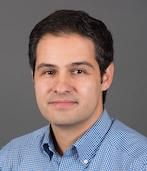 Ebrahimi-Fakhari, Darius, M.D., Ph.D
Ebrahimi-Fakhari, Darius, M.D., Ph.DFellow, Child Neurology, Boston Children's Hospital / Harvard Neurology Program, Boston, MA, & Sahin, Mustafa, M.D., Ph.D., Co-Investigator, Director - Translational Neuroscience Center, Professor of Neurology, Harvard Medical School, The F.M. Kirby Neurobiology Center, Department of Neurology, Boston Children’s Hospital, Boston, MA.
“Generation of Human Nerve Cells from Children with AP-4-Associated Hereditary Spastic Paraplegia to Support a Search for New Therapies”.
Clinical Trial: https://clinicaltrials.gov/ct2/show/NCT05354622?cond=spg47&draw=2&rank=2
-
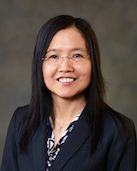 Li, Xue-Jun, Ph.D.
Li, Xue-Jun, Ph.D.Associate Professor, Department of Biomedical Sciences, Regenerative
Medicine & Disability Research Lab, University of Illinois College of Medicine at Rockford;
Department of Bioengineering, University of Illinois at Chicago, IL.“Using Patient-Specific Neurons to Explore the Treatment of HSP and PLS through Regulating Mitochondria”.
-
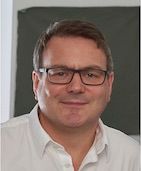 Sondermann, Holger, Ph.D.
Sondermann, Holger, Ph.D.Associate Professor, Department of Molecular Medicine, Cornell University, Ithaca, New York.
“Discovery of Novel Mechanisms Underlying HSP SPG3A”.
II. 2018 PLS Studies
-
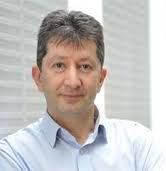 Al-Chalabi, Ammar, Ph.D.
Al-Chalabi, Ammar, Ph.D.Professor of Neurology and Complex Disease Genetics, Maurice Wohl Clinical Neuroscience Institute, King’s College London, UK, Director, Instructor in Complex Disease Genetics, Cold Spring Harbor Laboratory, NY, & Iacoangeli, Alfredo, Ph.D., Postdoctoral researcher in Bioinformatics, Department of Biostatistics and Health Informatics, King’s College London, UK.
“Investigating the Genetic and Environmental Causes of Primary Lateral Sclerosis”.
2017
I. 2017 HSP STUDIES
-
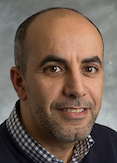 Azzouz, PhD, Mimoun
Azzouz, PhD, MimounERC Advanced Investigator, Chair of Translational Neuroscience,
Deputy Head, Neurology Unit Director of Research & Innovation, Sheffield Institute for
Translational Neuroscience, Sheffield University, United Kingdom"SPG15 Gene Therapy Research"
-
 Baas, Ph.D., Peter W.,
Baas, Ph.D., Peter W.,Professor, Neurobiology and Anatomy, College of Medicine, Drexel
University, Philadelphia, PA,“Cause of nerve degeneration in people with Hereditary Spastic Paraplegia"
-
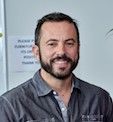 Morfini, Ph.D., Gerardo Andres
Morfini, Ph.D., Gerardo AndresAssociate Professor, University of Illinois at Chicago,
“Understanding how mutant Spastin affects the intracellular movement of organelles”.
-
 Stevanin, Ph.D., Giovanni
Stevanin, Ph.D., GiovanniResearch Director (INSERM) and Professor (EPHE), Institut du Cerveau et de la Moelle épinière - ICM (INSERM/UPMC UMR_S1127, CNRS 7225, EPHE), Pitié-Salpêtrière Hospital, Paris, France,
“Identification of biological pathways altered in the most frequent form of recessive spastic paraplegia, SPG11”.
II. 2017 PLS STUDIES
-
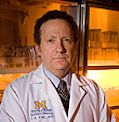 Fink, John, M.D.
Fink, John, M.D.Professor of Neurology, University of Michigan Medical Center, Ann Arbor, MI
“Primary Lateral Sclerosis: Biomaker Discovery”
III. 2017 HSP AND PLS STUDIES
-
 Paganoni, Sabrina MD, PhD
Paganoni, Sabrina MD, PhDAssistant Professor, Physical Medicine and Rehabilitation, Harvard Medical School, Boston, MA,
“Imaging of Neuro-Inflammation in PLS and HSP”.”
2016
-
Associate Professor, Biomolecular Chemistry, University of Wisconsin Madison
"Identifying underlying causes of Hereditary Spastic Paraplegia and creating avenues toward the development of new therapeutic interventions".
Link to PubMed article on study: https://pubmed.ncbi.nlm.nih.gov/30157421/
-
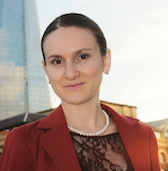 Viorica Chelban, M.D.
Viorica Chelban, M.D.Research Fellow, Department of Molecular Neuroscience, UCL Institute of Neurology, London, UK,
"Development of the UK clinical research network and biobank in HSP".
-
 Henry Houlden Ph.D
Henry Houlden Ph.DProfessor of Neurology and Neurogenetics, The National Hospital for Neurology and UCI, Institute for Neurology, London
"Development of the UK clinical research network and biobank in HSP"
-
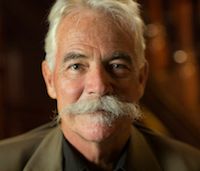 Alan Mackay-Sim Ph.D. Carolyn Sue, MBBS, Ph.D., Wali Gautum Frack, Ms.C., Ph.D., Jin Sung Park, Ph.D.
Alan Mackay-Sim Ph.D. Carolyn Sue, MBBS, Ph.D., Wali Gautum Frack, Ms.C., Ph.D., Jin Sung Park, Ph.D.Griffith University Australia
"Using stem cells to find drug treatments for SPG4 Hereditary Spastic Paraplegia"
-
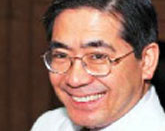 Hiroshi Mitsumoto MD, DSc.,
Hiroshi Mitsumoto MD, DSc.,Division Head, Wesley J Howe Professor of Neurology, Columbia University College of Physicians and Surgeons, Columbia University, New York, NY.
"Development of a PLS-specific clinical rating scale, capable of evaluating the clinical functional state of patients with Primary Lateral Sclerosis in multi-site study".
-
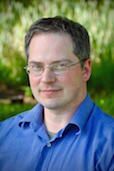 Emanuele Panza, Ph.D.
Emanuele Panza, Ph.D.Assistant Professor in Medical Genetics, Department of Medical and Surgical Sciences, University of Bologna, Italy,
"Understanding Hereditary Spastic Paraplegia: Lessons and Therapeutic options from a rare form of Hereditary Spastic Paraplegia".
2015
-
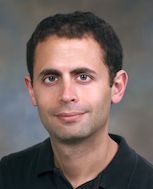 Benjamin Cravatt, Ph.D., Professor & Chair, Department of Chemical Physiology, The Scripps Research Institute, La Jolla, CA,
Benjamin Cravatt, Ph.D., Professor & Chair, Department of Chemical Physiology, The Scripps Research Institute, La Jolla, CA,Brain lipid metabolism in Hereditary Spastic Paraplegia
-
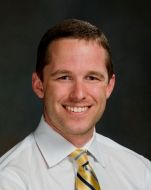 Jonathan J Rios PhD, Assistant Professor in Pediatrics, University of Texas Southwestern Medical Center, Dallas, TX, and Assistant Professor in the McDermott Center for Human Growth and Development, Texas Scottish Rite Hospital for Children, Dallas, TX
Jonathan J Rios PhD, Assistant Professor in Pediatrics, University of Texas Southwestern Medical Center, Dallas, TX, and Assistant Professor in the McDermott Center for Human Growth and Development, Texas Scottish Rite Hospital for Children, Dallas, TXEvaluating and Improving Personalized Genomic Medicine for Hereditary Spastic Paraplegia
-
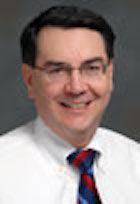 Roque Delgado-Ayala, MD, Medical Director, The Carter Center Initiative for Childhood Motor Disorders, and Texas Scottish Rite Hospital for Children, Dallas, TX
Roque Delgado-Ayala, MD, Medical Director, The Carter Center Initiative for Childhood Motor Disorders, and Texas Scottish Rite Hospital for Children, Dallas, TXEvaluating & Improving Personalized Genomic Medicine for Hereditary Spastic Paraplegia
-
 Tobias Sebastian Ulmer, Ph.D., Associate Professor of Biochemistry and Molecular Biology, Zilkha Neurogenic Institute, Keck School of Medicine, University of Southern California, Los Angeles, CA
Tobias Sebastian Ulmer, Ph.D., Associate Professor of Biochemistry and Molecular Biology, Zilkha Neurogenic Institute, Keck School of Medicine, University of Southern California, Los Angeles, CAStructural basis of brain carnatine palmitoyltransferase 1 function
-
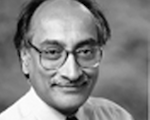 Teepu Siddique, M.D., Professor, Departments Neurology, and Cell and Molecular Biology, Northwestern University Feinberg School of Medicine, Chicago, IL
Teepu Siddique, M.D., Professor, Departments Neurology, and Cell and Molecular Biology, Northwestern University Feinberg School of Medicine, Chicago, ILWhole Exome Sequencing in Primary Lateral Sclerosis
-
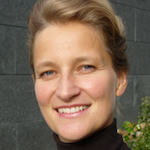 Rebecca Schule, M.D., Hertie Institute for Clinical Brain Research, University of Tuebingen, Tuebingen, Germany
Rebecca Schule, M.D., Hertie Institute for Clinical Brain Research, University of Tuebingen, Tuebingen, GermanyAlliance for Treatment in HSP and PLS
2014
-
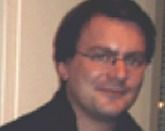 Holger Sondermann, Ph.D.
Holger Sondermann, Ph.D.Holger Sondermann, Ph.D., Associate Professor, Department of Molecular Medicine, Cornell Univ., Ithaca, NY.
“Towards a Mechanistic Understanding and Targeted Therapies in HSP type SPG3A”
-
 Evan A. L. Reid, Ph.D.
Evan A. L. Reid, Ph.D.Evan A. L. Reid, Ph.D., University Lecturer in Medical Genetics, Department of Medical Genetics, Univ. of Cambridge, UK.
“Defining a Pathway that could be Targeted to Increase Age at Onset of HSP”
-
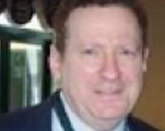 John K. Fink, M.D.
John K. Fink, M.D.John K. Fink, MD, Professor of Neurology, University of Michigan Medical Center, Ann Arbor, MI,
“New Treatment Strategies for Primary Lateral Sclerosis”
-
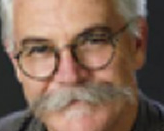 Alan Mackay-Sim, Ph.D.
Alan Mackay-Sim, Ph.D.Alan Mackay-Sim, Ph.D., Director, National Centre for Adult Stem Cell Research, Griffith University, Brisbane, Australia,
“Finding Drugs to Treat Hereditary Spastic Paraplegia”
-
 Anderw Grierson, Ph.D./Kurt De Vos, Ph.D./Mimoun Azzouz, Ph.D.
Anderw Grierson, Ph.D./Kurt De Vos, Ph.D./Mimoun Azzouz, Ph.D.Andrew Grierson, PhD, Kurt De Vos, Ph.D., Mimoun Azzouz, Ph.D., Sheffield Institute for Translational Neuroscience, University of Sheffield, UK,
“Development of Gene Therapy for treatment of Hereditary Spastic Paraplegia”
2013
-
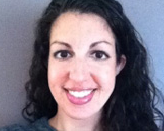 Christina Fournier, M.D.
Christina Fournier, M.D.Christina Fournier, M.D., Department of Neurology, Emory University, Atlanta, GA.
Virginia Freer-Sweeney PLS Fellowship (two years) in collaboration with NEALS (Northeast ALS Consortium).“Upper Motor Neuron Disease Biomarkers”
2012
-
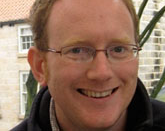 Andrew Grierson, Ph.D.
Andrew Grierson, Ph.D.Andrew Grierson, Ph.D., Senior Lecturer in Neuroscience, University of Sheffield, UK, and Kurt De Vos, Ph.D., Lecturer is Translational Neuroscience, University of Sheffield, UK, and Sheffield Institute for Translational Neuroscience,; and Ludo VanDen Bosch, Ph.D. Professor of Neurobiology, University of Leuven; Belgium Vesalius Research Center, Leuven, Belgium,
“Development of a new therapeutic approach for treatment of hereditary spastic paraplegia.”
-
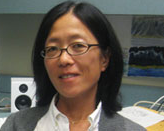 Tina H. Lee, Ph.D.
Tina H. Lee, Ph.D.Tina H. Lee, Ph.D., Associate Professor, Department of Biological Sciences, Carnegie Mellon University, Pittsburgh, PA,
“Identification of potential compounds to treat SPG3A-associated HSP.”
-
 Hiroshi Mitsumoto, M.D., D.Sc.
Hiroshi Mitsumoto, M.D., D.Sc.Hiroshi Mitsumoto, MD, DSc., Division Head, Wesley J. Howe Professor of Neurology, Columbia University College of Physicians and Surgeons, Columbia University, New York, NY,
“Extensive biomarker and genetic analysis of bio-samples obtained from patients with clinically definite PLS, whose clinical and epidemiological features are well defined.”
2011
-
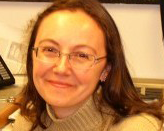 Paola Arlotta, Ph.D.
Paola Arlotta, Ph.D.Assistant Professor of Stem Cell and Regenerative Biology, Harvard University
“Molecular mechanisms of corticospinal motor neuron dysfunction in HSP and PLS”
-
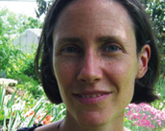 Melissa M. Rolls, Ph.D.
Melissa M. Rolls, Ph.D.Assistant professor, Biochemistry and Molecular Biology, Penn State University, University Park, PA
“Function of spastin in axon regeneration: a new role for the HSP protein Spastin”
-
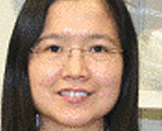 Xue-Jun Li, Ph.D.
Xue-Jun Li, Ph.D.Assistant Professor, Health Science Center, Department of Neuroscience, University of Connecticut, Farmington CT
“Elucidating the role of BMP signaling in HSP using patient-specific induced pluripotent stem cells”
-
 John K. Fink, M.D.
John K. Fink, M.D.Professor, Department of Neurology, University of Michigan, Ann Arbor, MI,
“Natural history of primary lateral sclerosis and hereditary spastic paraplegia: establishing parameters for clinical trials”
2010
-
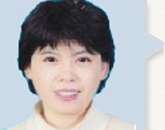 Dong-Hui Chen, M.D., Ph.D.
Dong-Hui Chen, M.D., Ph.D.Research Assistant Professor, Department of Neurology, University of Washington, Seattle, WA
“Genome-wide detection of mutations in all genes to identify the cause of a new familial spastic paraplegia.”
-
 Susan K. McConnell, Ph.D.
Susan K. McConnell, Ph.D.Susan B. Ford Professor of Humanities and Sciences, Department of Biological Sciences, Stanford University, Stanford, CA
“Optimal transplantation strategies for the reconstruction of corticospinal circuitry in HSP and PLS.”
-
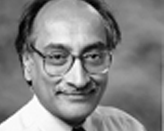 Teepu Siddique, M.D.
Teepu Siddique, M.D.Les Turner ALS Foundation/ Herbert C. Wenske Professor, Davee Department of Neurology and Clinical Neurosciences and Department of Cell and Molecular Biology, Director, Division of Neuromuscular Medicine, Feinberg School of Medicine, Northwestern University, Chicago, IL
“NTE-induced Upper Motor Neuron Degeneration in Primary Lateral Sclerosis.”
2009
-
 Hiroshi Mitsumoto, M.D., D.Sc.
Hiroshi Mitsumoto, M.D., D.Sc.Wesley J. Howe Professor of Neurology, Director, Eleanor & Lou Gehrig MDA/ALS Center, The Neurological Institute, Columbia University College of Physicians and Surgeons, New York, NY
“Multicenter Prospective PLS Natural History Study”
-
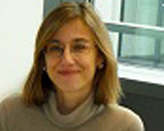 Elena Irene Rugarli, M.D.
Elena Irene Rugarli, M.D.University of Cologne, Germany.
“Exploring alternative functions of paraplegin, a protein involved in autosomal recessive and sporadic HSP.”
2008
-
 Paola Arlotta, Ph.D.
Paola Arlotta, Ph.D.Assistant Professor of Stem Cell and Regenerative Biology, Harvard University
Directed Differentiation of Neural Progenitors and iPS Cells into Corticospinal Motor Neurons
-
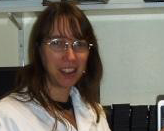 Janine Kirby, Ph.D.
Janine Kirby, Ph.D.Academic Neurology Unit, The University of Sheffield Medical School, Sheffield, United Kingdom
“Elucidation of upper motor neuron vulnerability in Primary Lateral Sclerosis”
-
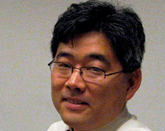 Yasushi Kisanuki, M.D.
Yasushi Kisanuki, M.D.Department of Neurology, Ohio State University, Columbus, OH
“Paraplegia in HSP Rat: Analysis and treatment”
-
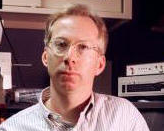 Jeffrey Macklis, M.D.
Jeffrey Macklis, M.D.Massachusetts General Hospital – Harvard Medical School Center for Nervous System Repair, Boston, MA
“Molecular-Genetic Controls over the Development, Connections, and Survival of Upper Motor Neurons”
2007
-
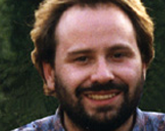 Peter W. Baas, Ph.D.
Peter W. Baas, Ph.D.Department: Neurobiology and Anatomy, Drexel University, Philadelphia, PA
“Mechanistic Basis of SPG4-based Hereditary Spastic Paraplegia”
Challenged the prevailing “loss of function” theory for how mutant SPG4/ Spastin causes HSP by showing that the defective protein expressed by this gene is actually toxic to neurons. Other proteins can perform the cellular function not being performed by defective Spastin protein. Published the results of his work in the February, 2008 issue of The Journal of Neuroscience, and the April, 2008 issue of the journal Molecular Biology of the Cell.
-
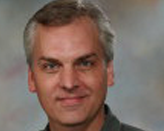 Bruce Horazdovsky, Ph.D.
Bruce Horazdovsky, Ph.D.Department of Biochemistry & Molecular Biology and The Mayo Clinic Cancer Center, Associate Dean, Mayo Clinic College of Medicine Rochester, MN
“Development of a cell culture system to analyze defects associated with Primary Lateral Sclerosis”
Developed a differentiated and polarized human cell culture system to evaluate the function of the protein Alsin in the normal and disease states. This step was necessary to apply for a large NIH grant regarding the protein Alsin (mutations in the ALS2/ Alsin gene cause infantile onset PLS, HSP and ALS).
-
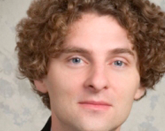 Stephen Zuchner, M.D.
Stephen Zuchner, M.D.Director, Center for Human Molecular Genetics, Miami Institute for Human Genetics, Leonard M. Miller School of Medicine, Miami, FL
“Molecular and genetic analysis of the SPG31 gene REEP1″
2006
-
 John K. Fink, M.D.
John K. Fink, M.D.Professor, Department of Neurology, University of Michigan, Ann Arbor, MI,
“Natural history of primary lateral sclerosis and hereditary spastic paraplegia: establishing parameters for clinical trials”
-
 Jeffrey Macklis, M.D. D.HST.
Jeffrey Macklis, M.D. D.HST.Massachusetts General Hospital – Harvard Medical School Center for Nervous System Repair, Boston, MA
“Molecular-Genetic Controls over the Development, Connections, and Survival of Upper Motor Neurons”
-
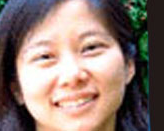 Nina Tang Sherwood, Ph.D.
Nina Tang Sherwood, Ph.D.IGSP Scholar and Assistant Research Professor of Biology, Duke University, Durhan, NC
“Understanding the ameliorative effects of temperature in fruit fly models of AD-HSP”
Dr. Sherwood’s work for the SPF is ongoing. Results have not been published or made public.
2005
-
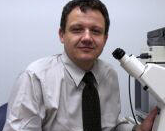 Peter Hedera, M.D.
Peter Hedera, M.D.Assistant Professor, Department of Neurology, Vanderbilt University Medical Center, Nashville, TN
“Invertebrate model of Hereditary Spastic Paraplegia”
Created a line of C. elegans (a microscopic worm) with HSP caused by mutations in their SGG6/ NIPA1 gene, and another line of these worms with HSP caused by knocking out their SPG2A/ Atlastin gene. Determined that HSP caused by mutations in the SPG6/ NIPA1 gene is associated with accumulation of misfolded NIPA1 protein, which triggers neuronal degeneration and programmed cell death. In a line of C. elegans with mutant SPG6/ NIPA1 genes and a mutation in another gene that causes the worms to be resistant to programmed cell death, observed that the disease course was slower and less severe. Published findings in the December, 2008 issue of the Journal of Neuroscience.
-
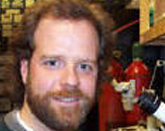 Kendal S. Broadie, Ph.D.
Kendal S. Broadie, Ph.D.Professor of Neurobiology, Vanderbilt University, Nashville, TN
“Mechanistic Interactions among Hereditary Spastic Paraplegia Genes”
-
 Jeffrey Macklis M.D.
Jeffrey Macklis M.D.Massachusetts General Hospital – Harvard Medical School Center for Nervous System Repair, Boston, MA
“Molecular-Genetic Controls over the Development, Connections, and Survival of Upper Motor Neurons”
2004
-
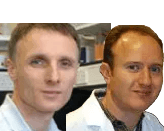 Vincent T. Cunliffe, Ph.D./Jonathan D. Wood, Ph.D.
Vincent T. Cunliffe, Ph.D./Jonathan D. Wood, Ph.D.Centre for Developmental Genetics and Department of Neurology, University of Sheffield, Sheffield, United Kingdom
“Modelling the neurodegenerative processes caused by mutation of the spg4 gene in zebrafish and development of strategies for pharmacological intervention”
Discovered a crucial role for Spastin (defective Spastin causes the most common type of adult onset HSP) in promoting axon outgrowth in the zebrafish embryo. The discovery was published in the high profile journal Human Molecular Genetics, and the journal also included an image from the paper on the cover of the issue in which the article appeared, further enhancing the visibility of the research.
-
 Teepu Siddique, M.D.
Teepu Siddique, M.D.Les Turner ALS Foundation/ Herbert C. Wenske Professor, Davee Department of Neurology and Clinical Neurosciences and Department of Cell and Molecular Biology, Director, Division of Neuromuscular Medicine, Feinberg School of Medicine, Northwestern University, Chicago, IL
“NTE-induced Upper Motor Neuron Degeneration in Primary Lateral Sclerosis.”
2003
-
 John K, Fink, M.D.
John K, Fink, M.D.Professor, Department of Neurology, University of Michigan, Ann Arbor, MI,
“Natural history of primary lateral sclerosis and hereditary spastic paraplegia: establishing parameters for clinical trials”
-
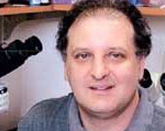 Douglas Marchuk, Ph.D.
Douglas Marchuk, Ph.D.Department of Molecular Genetics & Microbiology, Duke University, Durham, NC
“A Mouse Model for Hereditary Spastic Paraplegia”
Developed a line of mice into which the mutated, human gene KIF5A was incorporated. (Mutated KIF5A causes HSP.) These mice developed several symptoms consistent with human HSP. These mice were then cross-bred with another line of mice that had been developed by Dr. Larry Goldstein at the University of California, San Diego that had only one copy of the KIF5A gene. This was done to attempt to develop mice that developed more severe HSP-like symptoms and at an earlier age. By the end of the period of grant funding, those mice were too young to have developed symptoms.
Our Impact since our inception...
-
Dollars Raised
Over 12,000,000 dollars for research!
